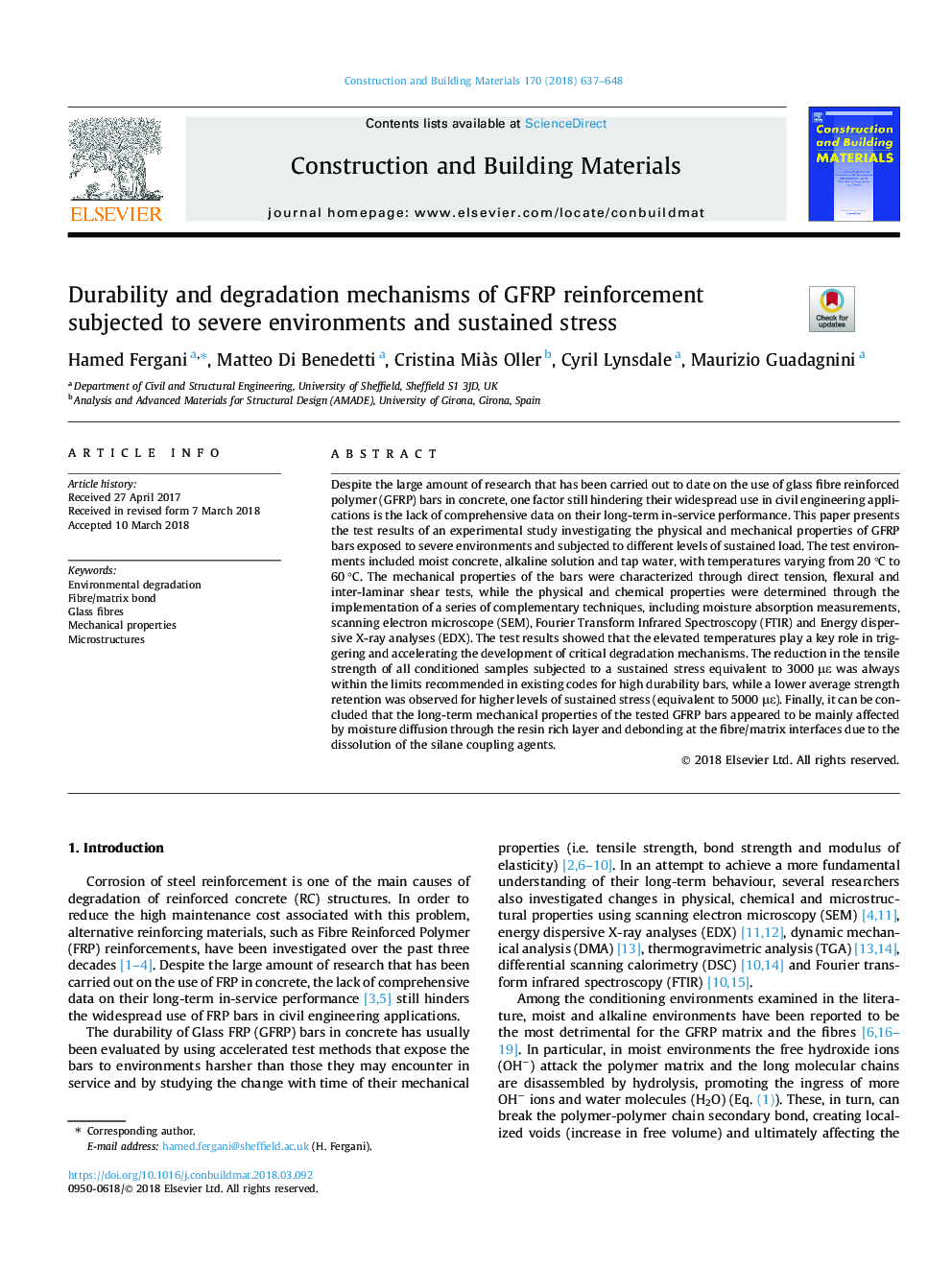| Article ID | Journal | Published Year | Pages | File Type |
|---|---|---|---|---|
| 6714065 | Construction and Building Materials | 2018 | 12 Pages |
Abstract
Despite the large amount of research that has been carried out to date on the use of glass fibre reinforced polymer (GFRP) bars in concrete, one factor still hindering their widespread use in civil engineering applications is the lack of comprehensive data on their long-term in-service performance. This paper presents the test results of an experimental study investigating the physical and mechanical properties of GFRP bars exposed to severe environments and subjected to different levels of sustained load. The test environments included moist concrete, alkaline solution and tap water, with temperatures varying from 20â¯Â°C to 60â¯Â°C. The mechanical properties of the bars were characterized through direct tension, flexural and inter-laminar shear tests, while the physical and chemical properties were determined through the implementation of a series of complementary techniques, including moisture absorption measurements, scanning electron microscope (SEM), Fourier Transform Infrared Spectroscopy (FTIR) and Energy dispersive X-ray analyses (EDX). The test results showed that the elevated temperatures play a key role in triggering and accelerating the development of critical degradation mechanisms. The reduction in the tensile strength of all conditioned samples subjected to a sustained stress equivalent to 3000â¯Î¼Îµ was always within the limits recommended in existing codes for high durability bars, while a lower average strength retention was observed for higher levels of sustained stress (equivalent to 5000â¯Î¼Îµ). Finally, it can be concluded that the long-term mechanical properties of the tested GFRP bars appeared to be mainly affected by moisture diffusion through the resin rich layer and debonding at the fibre/matrix interfaces due to the dissolution of the silane coupling agents.
Related Topics
Physical Sciences and Engineering
Engineering
Civil and Structural Engineering
Authors
Hamed Fergani, Matteo Di Benedetti, Cristina Miàs Oller, Cyril Lynsdale, Maurizio Guadagnini,
